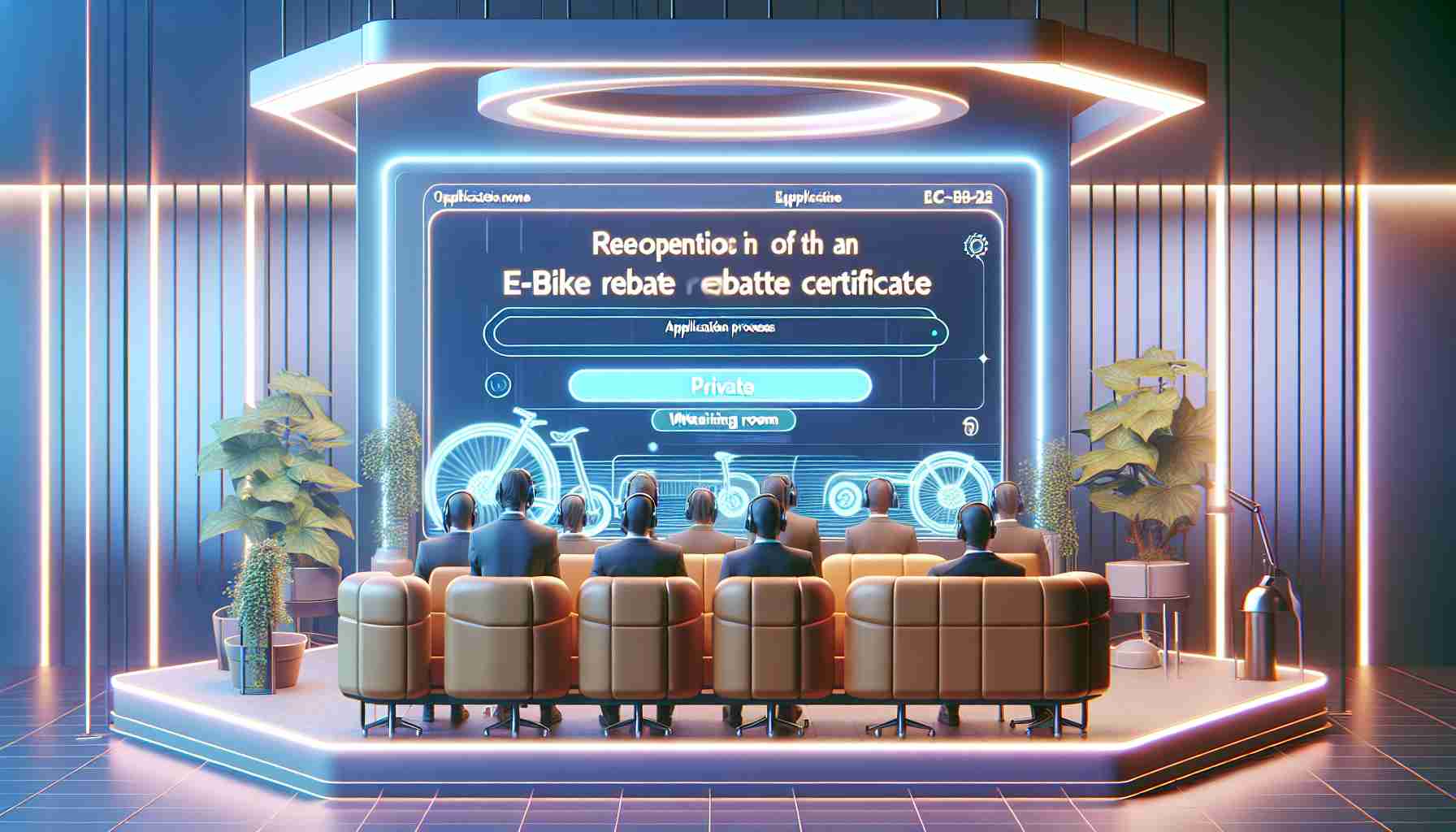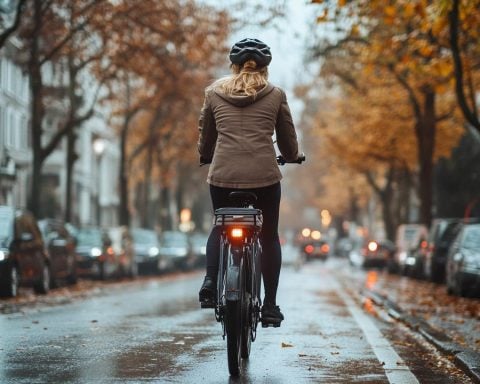The Minnesota Department of Revenue and Minnesota IT Services have announced that the online application for individuals to apply for an e-Bike Rebate Certificate will reopen on Tuesday, July 2, 2024, at 11 a.m. However, this time around, there will be a new waiting room system in place to accommodate the high demand for rebates.
To manage the surge of users when the application opens, applicants may need to wait in a virtual waiting room. This process is similar to how major sports teams handle ticket sales for their playoff games. Access to the rebate application will be granted in the order individuals enter the waiting room. Once inside the application, applicants will have 15 minutes to complete and submit their information.
It is important to note that the application window will be brief, with only around 10,000 submissions being accepted. Once this limit is reached, the rebate application will close, and individuals still in the waiting room will be notified that they cannot apply for the rebate this year.
To apply for the e-Bike Rebate Certificate, individuals can sign up to receive an email update with the application link, which will be sent prior to July 2, 2024. Alternatively, applicants can follow the Minnesota Department of Revenue’s social media channels for updates.
To complete the application, individuals will need to provide their name, contact information, date of birth, Social Security Number or Individual Taxpayer Identification Number (ITIN), tax filing status in the previous calendar year, and adjusted gross income in the previous calendar year. This information can be found on Minnesota Form M1 or Federal Form 1040.
After submitting the application, individuals can expect to receive an email confirming that their application has been received. The applications will then be reviewed in the order they were received, and applicants will be notified of the decision by July 9, 2024. Approved applicants will receive their rebate certificate via email by July 10, 2024, and can use it to receive a discount when purchasing a new e-bike from an approved retailer.
If applicants are asked to provide additional information, they will have 21 days to do so via email. Those who are placed on the waitlist will be notified if more rebate certificates become available. Unfortunately, some applications may be denied if individuals do not meet the eligibility requirements or if all the rebate certificates have been allocated.
The number of rebate certificates issued for the program is limited by the funds available. In 2024 and 2025, $2 million has been allocated for rebates, with an estimated 1,300 rebate certificates expected to be awarded.
For more information on the e-Bike Rebate program, including updated FAQs, a list of approved retailers, and a rebate calculator, individuals can visit the Revenue’s e-bike rebate webpage. If individuals do not receive a rebate this year, they will have the opportunity to apply again when the application reopens in 2025.
The e-bike industry has been growing rapidly in recent years, as more individuals are opting for eco-friendly transportation options. E-bikes, or electric bicycles, have gained popularity due to their ability to provide assistance while pedaling, making commuting and recreational biking activities easier and more enjoyable.
Market forecasts indicate that the global e-bike market is expected to witness significant growth in the coming years. Factors such as increasing concerns over environmental sustainability, rising fuel prices, and the need for efficient and affordable modes of transportation are driving the demand for e-bikes. Additionally, advancements in battery technology and the development of more powerful and lightweight motors have contributed to the growth of the industry.
However, the e-bike industry also faces certain challenges. One of the main issues is the lack of standardized regulations and policies across different regions. Different countries and states have varying laws regarding the use of e-bikes, leading to confusion among consumers and potential barriers to market growth. Efforts are being made by governments and industry associations to establish clear guidelines and regulations to promote safety and encourage the adoption of e-bikes.
Another challenge faced by the industry is the high cost of e-bikes compared to conventional bicycles. While the prices of e-bikes have been declining over the years, they still remain relatively expensive for some consumers. Affordability continues to be a barrier for many potential buyers, although government incentives and rebates, such as the e-Bike Rebate program in Minnesota, help make e-bikes more accessible and encourage their adoption.
The e-Bike Rebate program in Minnesota aims to incentivize individuals to purchase e-bikes by providing financial assistance. The program offers a rebate certificate to approved applicants, which can be used to receive a discount when purchasing a new e-bike from approved retailers. The number of rebate certificates issued for the program is limited by the funds available, with $2 million allocated for rebates in 2024 and 2025.
To apply for the e-Bike Rebate Certificate, individuals are required to provide their personal information and tax details from the previous calendar year. The application process is brief and has a limited window, with only around 10,000 submissions being accepted. Once the maximum limit is reached, the application will close, and individuals in the waiting room will be notified that they cannot apply for the rebate in the current year.
It is important for applicants to stay updated on the application process and any changes or updates. Individuals can sign up to receive email updates with the application link prior to the opening date or follow the Minnesota Department of Revenue’s social media channels for updates.
For more information on the e-Bike Rebate program, individuals can visit the Revenue’s e-bike rebate webpage, which provides frequently asked questions, a list of approved retailers, and a rebate calculator. Additionally, individuals who do not receive a rebate this year will have the opportunity to apply again when the application reopens in 2025.
Overall, the e-bike industry is experiencing significant growth and has the potential to revolutionize transportation. Government incentives and rebate programs play a crucial role in promoting the adoption of e-bikes and making them more accessible to a wider range of consumers. However, the industry also faces challenges, including the need for standardized regulations and the high cost of e-bikes. With ongoing advancements and efforts to address these issues, the e-bike industry is expected to continue thriving in the coming years.























